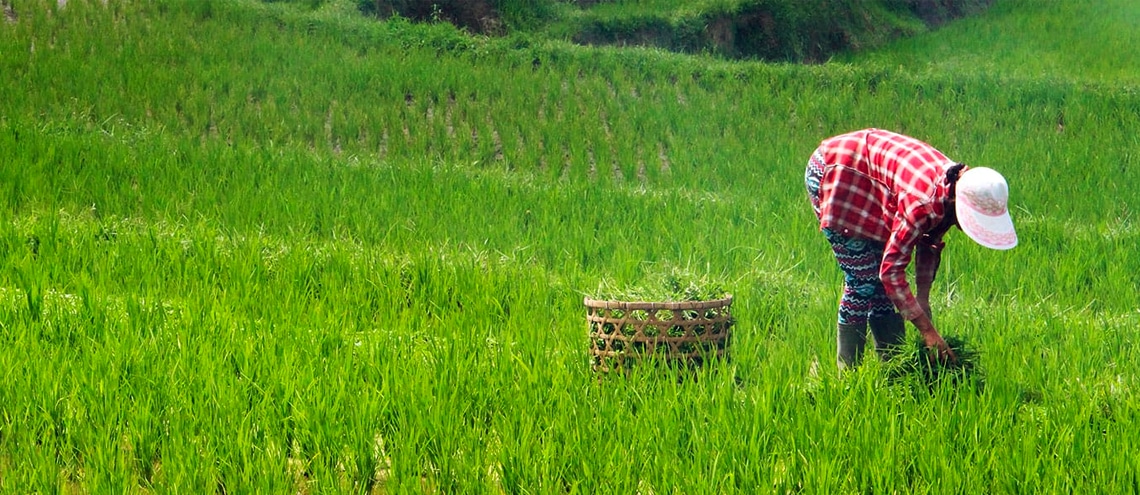

Connecting farmers for a better supply chain.
Despite the productivity gains made in recent years, farming in Indonesia is still a tough line of business to be in. The sector is reportedly booming under Widodo’s leadership, with an increase in the production of staple crops such as rice and soy, and record numbers of employment (roughly a third of the population), but the Indonesian Farmers Association reports significant welfare challenges, including lack of access to working capital, high quality seeds, fertilizers, agricultural technology, and efficient distribution.
A new fintech start-up plans to turn things around, and is attracting investors. Tani Group raised $10m in a Series A funding round, just a year after winning the support of several angel investors. Its aim is to build a better supply chain for farmers by connecting small and medium-sized agriculture enterprises directly with buyers. Already, it has linked over 400 of these SMEs to markets, including Indonesia’s largest supermarket chains Lottemart, Giant, and HERO.
Not only does the group facilitate direct sales, but it also connects farmers directly with lenders through a crowd-financing platform, TaniFund, enabling food producers (including farms and fisheries) to invest in their businesses, becoming more responsive to market trends. The platform offers investors an annual return of up to 24% through a fair profit-sharing scheme, supported by experienced investment managers who select the best farms to ensure high yields. It won first prize in the 2017 national competition Finspire, powered by a Mandiri bank subsidiary to seek out the best opportunities in fintech.
Funders can choose to invest in particular crop harvests which are advertised with tenures stretching from one month to over two years, and detailed notes on the prospects and risks. For instance, you can now invest in Berastagi carrots, famous in North Sumatra and sought-after for vitamin A and antioxidants used in facial masks and other cosmetics, giving them broad market appeal and potential. The cultivators are Radhea Putra Farmer Group in Margamukti Village, Bandung, who have been selected by TaniFund for their good track record in carrots, and also potatoes and tomatoes.
While most of the Group’s focus is on the wholesale supply chain, it has also launched TaniHu—a farm-to-table app that allows consumers to source fresh produce directly, bypassing the country’s outdated, wasteful, and complex distribution systems. Early user reviews are encouraging. Dhiya Sholiha writes: “Tanihub gives me a chance to buy things from local farmers … In some markets, it gives more varieties than shopping in local markets. The vegetables are fresh and take only a few hours to deliver.” However, she adds, it’s slow to load. Other reviewers also praise the product quality, competitive pricing, and delivery times. One asks if they have plans to expand in Pakistan.
Is this the future of agricultural investment?
This article was originally published on MIT Insights